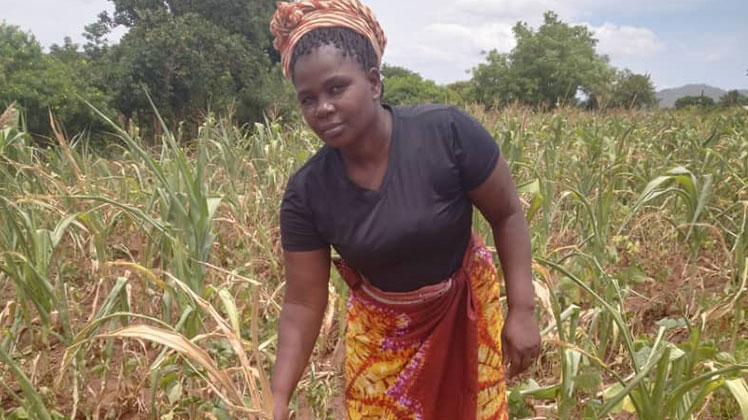Hot business burning forests
They call it hot business, but illegal trade in charcoal is reducing forests in Malawi to ashes.
The worst hit zones include Phalula Trading Centre, a sprawling valley area split by the Shire River—a source of almost 99 percent of the country’s hydro-electric power.

Communities along the river’s catchment area are not only cashing in on frequent power blackouts and exclusion of the majority of the population from the national grid.
It is their survival, a daily struggle to overcome hunger and poverty
Security agencies, the Department of Forestry and conservationists have been hard at work, striving to curb reckless cutting down of trees.
But the forests in the Upper Shire Valley are being wiped out at an alarming rate as the population, with only one in 10 connected to the on-off national grid, offers a boundless market for the banned commodity.
In Kanyaza Village, residents seem desperate for cash offered by businesspeople from cities and town who own trucks hauling bags of charcoal from the remote forest day and night.
During a visit, they were spotted carrying bags on their heads and bicycles for almost five kilometres to a roadside spot where they are loaded into the trucks.
Bicycle operators, locally known as kabaza, are making a killing.
Charcoal makers sell the bags to middlemen at K2 000 each, with small ones going at K800.
The truckloads leaving the banks of the river, where siltation and falling water levels left the country with intermittent power supply, sell at least three times the buying price when they get to Blantyre and Lilongwe.
“We have customers who buy in bulk,” said one of the villagers in Kanyaza. “It is hot business and our families are no longer starving.”
In the remote locality, it takes just an axe and less than 30 minutes to fell a 15-year-old indigenous tree. In an hour or two it will be buried in sand, ready to burn all night.
Such a tree produces no less than three big bags worth K6 000, they say.
It is amazing how the haulers from Blantyre, almost 100 kilometres, get away with the illicit cargo on the roads where police checkpoints are not few and far apart.
There are three between Phalula and Blantyre.
It is none of their business, the locals say.
At Zalewa Roadblock in Mwanza, charcoal-carrying vehicles belonging to government agencies and non-governmental organisation were seen passing the checkpoint manned by police and forestry officers.
The trucks, which transport charcoal at night, seem to have a free way—the liberty only second to villagers who sell charcoal less than two kilometres from the checkpoint.
Jimmy Thomas, a charcoal seller at Phalula, says the illicit business wiping out the Shire’s forest cover is his only source of income and food.
“We don’t have other means of sustaining ourselves and our families. We cannot imagine a future without this. We need alternative means of making money,” he says.
The locals say they want business capital, as using the police and armed forces is only making them to go underground and continue felling the trees.
“We know we are destroying nature, but we have no other option,” he says.
But the truckloads of charcoal on the move to various cities and towns raise questions over government’s efforts to combat the trade.
For years, arrests, capture-and-confiscate operations, beatings and fines have not dissuaded people from trade in illegal commodities such as charcoal when the demand is high.
Early this year, Minister of Natural Resources, Energy and Mining Bright Msaka promised tougher sanctions against charcoal producers and traders.
Government and Mott McDonald are empowering people along the Shire with the skills and capital to embark on businesses that do not pose a threat to nature.
As part of the Shire River Basin Management Programme, the locals form groups which receive grants for businesses of their choice.
“Charcoal burning will not be tolerated at all cost,” said Blantyre District Council chairperson Tawanda Tambula when he handed a cheque to Kapichira Common Interest Group in May.
The Forestry Act outlaws production, transportation and vending of charcoal without a licence.
Government has only licensed one charcoal business-Kawandama Farm in Viphya Plantation.
Mott McDonald deputy team leader Charles Kanyinji describes the truckloads of charcoal leaving the forests as a big setback to conservation efforts, saying it requires urgent action.
He says as facilitators, government and its partners in the Shire River Basin initiative are doing their part to help communities come up with sustainable plans, businesses and activities to wean them from depending on tendencies that harm the environment.
Mott McDonald helps community members form business groups which receive financial support to stop plundering nature.
“As facilitators, we are doing our job, making sure that the communities’ focus shifts to small-scale businesses other than making charcoal. We want to ensure the environment is conserved so that the people can harvest back,” he explains.
The programme is expected to end in 2027.





